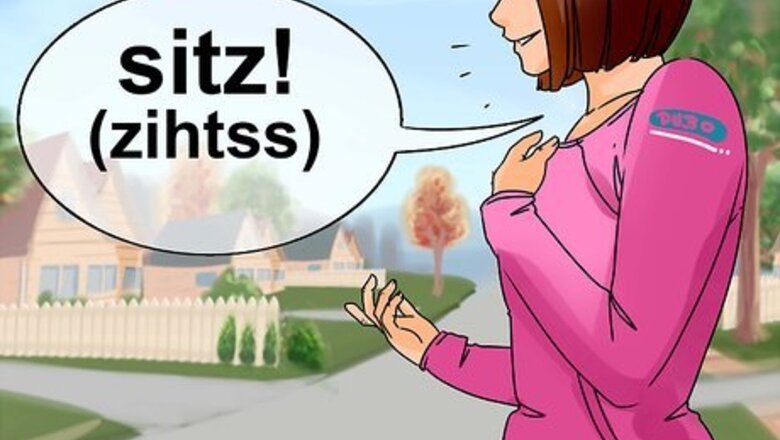
views
Saying Sit in German
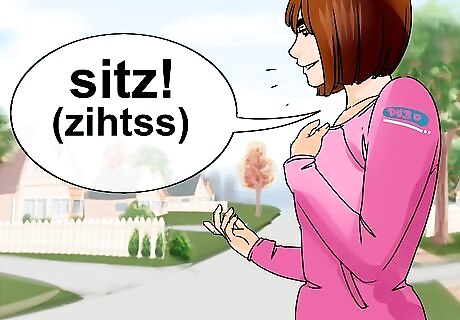
Master the word for sit. In German, the verb for sit is “sitzen.” The verb is pronounced “zitss-ihn.” Put the emphasis on the first syllabus in the word. The German verb for sit down is “sich setzen” (zeek zeh-tsihn). If you want to tell someone to sit, though, the quickest way to do that is to say, "sitz!" (pronounced as zihtss). Be aware this could be perceived as impolite!
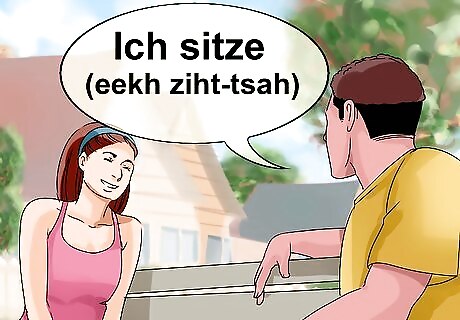
Master some common phrases using the word sit. You will want to learn a few sentences that contain the word for sitting. Some people want to use German when commanding certain breeds of dogs to sit. You may, instead, need to speak German to a person! To say sit down, say “setz dich” (zehts deekh). This differs from the verb itself because it's conjugated with dich, which means you. Bittzen setzen sie sich means please take a seat (bit-tsihn zeh-tsihn zee zeekh). The ch is pronounced uniquely in German. It’s best to listen to it. Some have described it as sounding like an angry cat sound! It's a bit like a "kah" sound in English, but more gutteral. Ich sitze means I am sitting (“eekh ziht-tsah”). Again, listen to the German version of –ch.
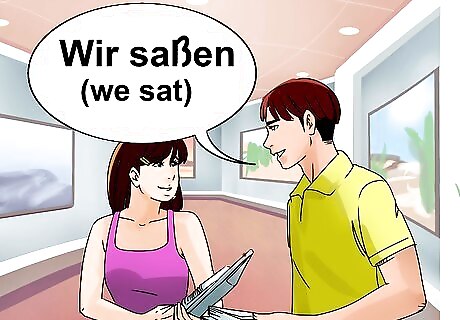
Use past tense for the word sit. Perhaps you want to say that you sat, not that you’re sitting. The past tense version of the verb sitzen is sass. Pronounce sass “sahss.” The "a" sound is similar to the "o" in the English word bond. Ich saß (I sat). The ß is the German symbol for a double s, “ss.” Du Saß (You sat, informal). Er saß (He sat). Wir saßen (We sat). Ihr saß (She sat). Sie saßen (They sat, formal). You can find detailed charts online for other tenses of the verb to sit, including the past perfect, future I and future II versions of the verb. For example, I have sat is “Ich habe gesessen” in German (pronounced Eek hah-bah Gih-seh-ssihn).
Pronouncing German Words
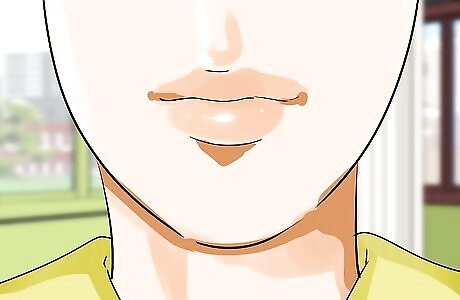
Hold your mouth correctly. When pronouncing German words, try to hold your mouth fairly tightly shut when talking. This is how native Germans speak. Germans have visible tension in their mouth and pull their lips to the side when they pronounce words. Sometimes non-native speakers of German will hold their mouths too slack, especially their lower lips. Too loose of a lower lip, and you will not sound German. You will look like you’re chewing gum, and your accent will be obvious!
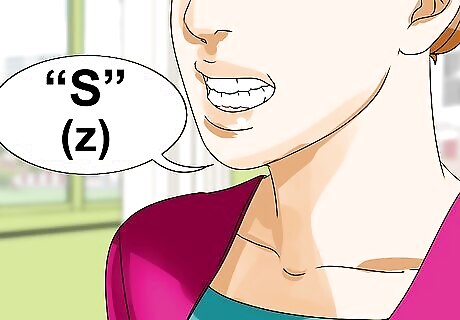
Pronounce consonants correctly in German. When saying sit in German, it’s important that you understand that an “s” in German doesn’t sound like an English “s.” When the letter “s” appears in front of a vowel, you need to pronounce the German consonant “s” like you would pronounce the English “z.” Thus, the “s” at the start of the word “sitzen” should be pronounced like an English “z.” The German sound “z” is not voiced as strongly in German as it is in English, though. Be aware that the way you pronounce the letter “s” is different though when it appears at the end of a word instead of at the front. The sound at the end is a hissing sound of an “s.” That is also the case when a double “s” appears in the middle of a word. When the German letter “z” is in the middle of a word (as with sitzen), it is pronounced as an English “ts” sound.
Determining the Context
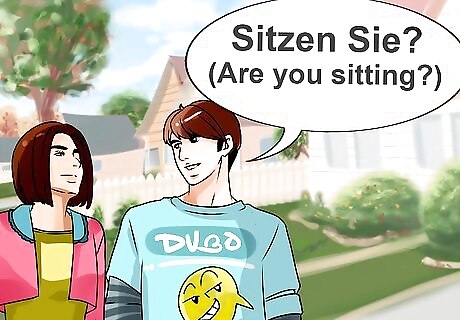
Choose whether to speak formally or informally. In German, you will conjugate a verb like the one for "to sit" depending on the context and the person you are addressing. You will use different words for formal settings and different words when speaking to a friend more casually. Du is the word for you that is used when you are speaking to a friend or someone more informally. The word is pronounced “doo.” Sie ("zee") is the word for you that is used when you are speaking to an older person or someone with greater status, such as a boss. Keep the –en on the end of verbs you use more formally. This matters when saying the word sit if you are addressing someone else. Sitzt du? (Are you sitting) is how you would speak to someone informally. Sitzen Sie? (Are you sitting) is how you would address someone more formally.
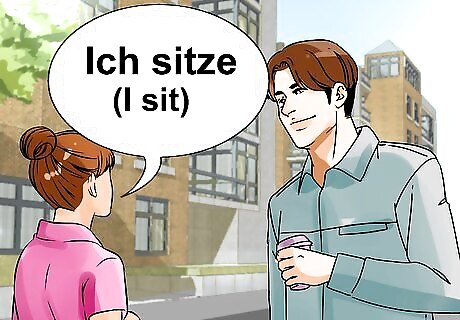
Conjugate the verb correctly. Sitzen is the full verb for to sit. However, in German, the way you use that word changes depending on whom you are addressing and the context. You need to shorten the verb for non-formal and non-plural uses. Ich sitze (I sit) Du sitzt (you sit, informal) Er sitzt (he sits) Wir sitzen (we sit) Ihr sitzt (she sits) Sie sitzen (They sit, formal)



















Comments
0 comment